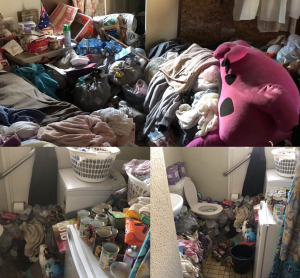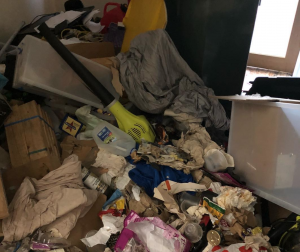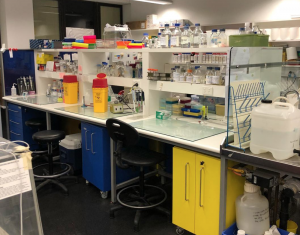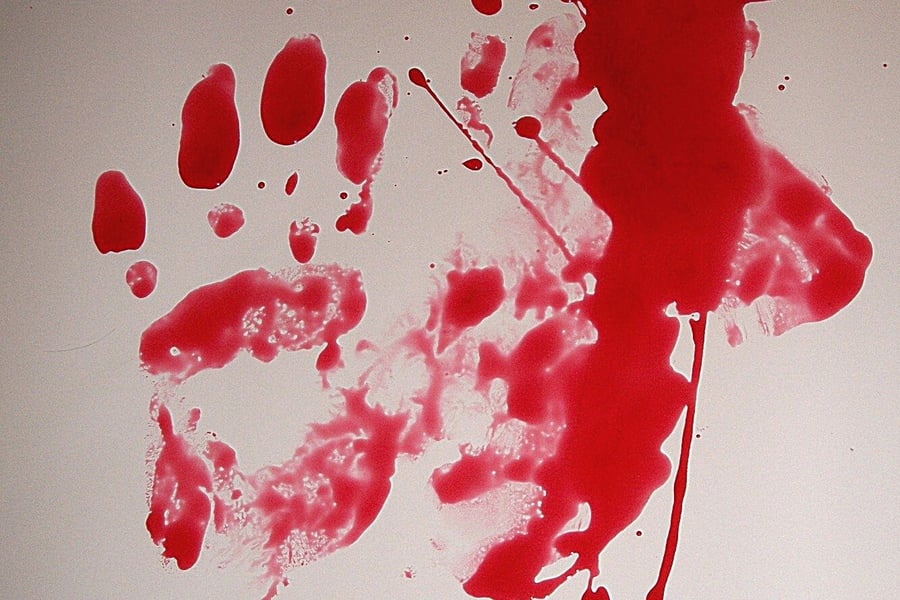There’s no question that true crime is having a huge moment in pop culture right now, but what do the people who face death every day think about it?
From podcasts like My Favourite Murder to The Teacher’s Pet to documentary series like Making a Murderer and Don’t F**k with Cats, it seems that we can’t get enough of true tales of horrifying acts that can, at times, be stranger than fiction.
But while we’re able to switch off our TVs and pause our podcasts to disconnect from the shocking realities of these stories, there are those whose job it is to – quite literally – clean up the aftermath of death every single day, and according to them, it’s far grislier than anything we’ve witnessed on TV.
“I watch those sort of shows and it’s entertaining, but when you’re actually doing it, it’s not like that at all,” Terrie from Sydney Crime and Trauma Cleaning said.
“In a way, it’s almost made to look almost ‘glamorous’,” she explained, “and while it is interesting, it’s definitely not like TV shows portray. It’s very dirty, very smelly work. The smell of walking into a scene is something that never ever, ever, leaves you”.
Terrie Hayter and Timothy Molesworth are forensic cleaners, which means they’re on call 24/7 to clean up suicides, homicides, houses of hoarders, meth labs, trauma scenes and everything in between.

Crime scene cleaners deal with everything from hoarders to murder scenes and meth labs.
And despite how CSI might portray it, Terrie explained that on top of having to deal with gruesome scenes on a daily basis, working as a trauma cleaner is incredibly physically gruelling.
Love Music?
Get your daily dose of everything happening in Australian/New Zealand music and globally.
“It’s hot, you’re wearing protective overalls and shoe covers and most of the time you have to wear a mask and you can’t breathe properly and if the filter suddenly needs replacing, the smell immediately comes right through,” she said, adding, “Then there’s the relentless itching in your clothes and your hair.”
Asked to elaborate on “the smell” they so often referred to, the pair don’t hold back on painting a visceral image on what they described as the “unmistakable stench of death.”
“It’s almost like off meat,” Timothy said, as Terrie added, “It’s like if you put meat in your fridge without power, left it for three weeks and then opened it, that’s probably the smell that you would get.”
“If it’s hot weather and if there are windows open, then there’s usually maggots too, usually on mattresses. And that’s the other thing, most people die on mattresses which basically acts like a giant sponge,” she said.
Terrie continued, “Everything [in the body] leaks out. It goes through the mattress, the bed base, the carpets, the underlying material and the concrete. There’s so much liquid and other material. It’s definitely not like they show on Law and Order.”
“Those shows may be based on true crime, but it definitely doesn’t look like the scenes we deal with.”

Crime scene cleaning is nothing like television depicts, Sydney Crime and Trauma Cleaning say.
In shocking contrast to the highly sanitised ‘death’ scenes we’ve become accustomed to in film and television, the duo described the most difficult job they’ve had, which involved a gruesome scene in which a man had passed away in his bathroom but wasn’t discovered for an entire month.
“His body had dissolved into the tiles and hardened,” Terrie recalled. “I would describe it to be similar to an oven with all that greasy stuff, but it had gone hard and baked on to the tiles.”
Timothy added, “It was just skin and hair at this point. I literally had to scrape the deceased’s body matter off the floor tiles into plastic bags. The body wasn’t even there; it was just so completely gone.”

Sydney Crime and Trauma Cleaning often clean up biohazard sites.
The description alone is enough to make anyone nauseous, and if it does, then this career path probably isn’t for you.
“You definitely need a strong stomach. If a smell makes you throw up, this is not for you,” Terrie stressed.
Terrie and Timothy are clearly up to the task. “I don’t think there’s been any scene that we’ve gone, ‘Oh gross, were not doing this’,” Terrie laughed.
“It’s also really important to be able to distance yourself emotionally at work. You need to have compassion and empathy as there’s often family around,” she added.
Working in such an emotionally and physically taxing job, one would assume that having the constant reminder of death would, for better or worse, alter your perspective on life, death and dying in general.
“It hasn’t changed the way I think about death,” Terrie mused. “It has changed the way I think about society. Like when the deceased person hasn’t been found for weeks how do people not know someone has died?”
“For example, the man who died in his bathroom,” she explained.
“As we cleaned his unit, a man walked up to me and asked, ‘Are you relative?’ And I said no. He went on to say, ‘I can’t believe I used to have a beer with him every day!’ And I felt like saying to him, ‘There was a month there where he wasn’t having a beer with you every day, didn’t you think there might be something wrong?’” she continued.
“It’s just heartbreaking.”



































